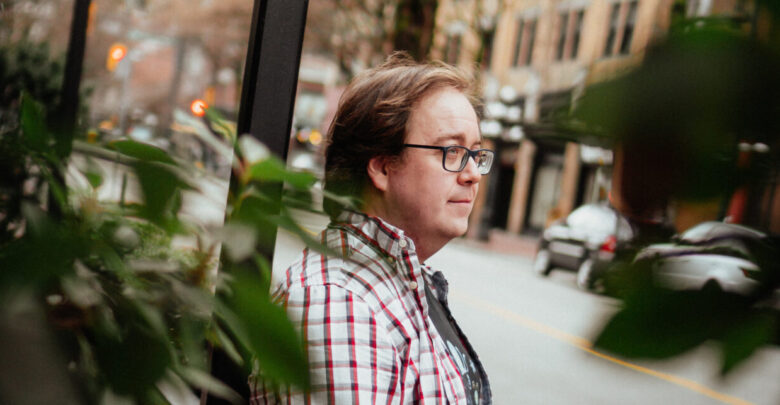PhD student wins three awards for poetry collection ‘Whitemud Walking’
"Having no expectations and to have it so well received is a real privilege and honour," U of A PhD student says.
 Supplied
SuppliedWhitemud Walking, a poetry collection published in 2022 by Matthew James Weigel, has won the Gerald Lampert Memorial Award, the Robert Kroetsch City of Edmonton Book Prize, and the Stephan G. Stephansson Award for poetry.
Weigel is a PhD student in the department of English and film studies at the University of Alberta. The collection connects Weigel’s Dene and Métis background to Edmonton and the U of A.
“Poetry is so expansive and can hold so many things,” Weigel says
The book is a collection of poetry, photographs, and documents compiled by Weigel over the course of three years. The stories impact Weigel personally with his history and connections to the land.
“The story is so complex and touches on so many different topics. It was important to realize that there isn’t just going to be one way to tell the story. Poetry is so expansive and can hold so many things,” Weigel said.
Weigel initiated the project when he found a copy of the Treaty Six parchment in the U of A’s Bruce Peel Special Collections. The Treaty Six agreement was signed by Canadian Crown representatives and Assiniboine, Cree, and Ojibwe leaders in 1876. After finding the parchment, Weigel had questions.
“I wanted to know things like, how [was the parchment] printed? How rare is it? How did it get into the university, and what’s the story behind it? So the project started out by trying to answer these questions.”
“I think that understanding that those connections are part of who I am and part of the story that I’m telling of the walks through Whitemud Creek,” Weigel said.
Whitemud Creek, a stream passing through Edmonton that flows into the North Saskatchewan River, inspired the structure of the book. Weigel wanted to tell his story by understanding the interconnectivity between various elements of history, location, and himself.
“I spent a lot of time in Whitemud Creek. It’s a place that’s very special to me,” Weigel said. “The creek bends back on itself. I cross the creek at multiple points, I go along it, and I cross it coming back. I can illustrate that these stories are connected in a complex way and those stories have an impact on me as well.”
Weigel also connected his roots at the U of A through his storytelling. He was born at the University of Alberta Hospital and has lived in Edmonton his whole life.
“Having it so well received is a real privilege and honour,” Weigel says
Edmonton is central to the book and Weigel’s background. He described the city as “incredibly inspiring.” He also commended the literary community.
“[There are] so many incredible writers, artists, poets, and creative people in the city that I’m really honoured to be in [the same] community with. I think it’s important that I add to that community that has given me so much,” Weigel said.
“It’s been really incredible. Seeing all of that recognition come in a short period of time was overwhelming. Having no expectations and to have it so well received is a real privilege and honour.”
Weigel is currently working on his PhD, which focuses on his commute from his office at the U of A to his apartment in Old Strathcona.
“[It’s] a short 20-minute walk. But walking alongside the river comes with so many layers of story and complex history that [this] simple walk can take as long as I want it to,” Weigel said.
“It’s a complicated thing when you’re working at an institution that has such a difficult history to grapple with. Reflecting on the institution and the work is something that’s really important for the stories that I’m going to be telling next. It’s been an incredible privilege to be doing the work and have the university community embrace that work. At times this can be difficult, but I think it is also really generative.”




